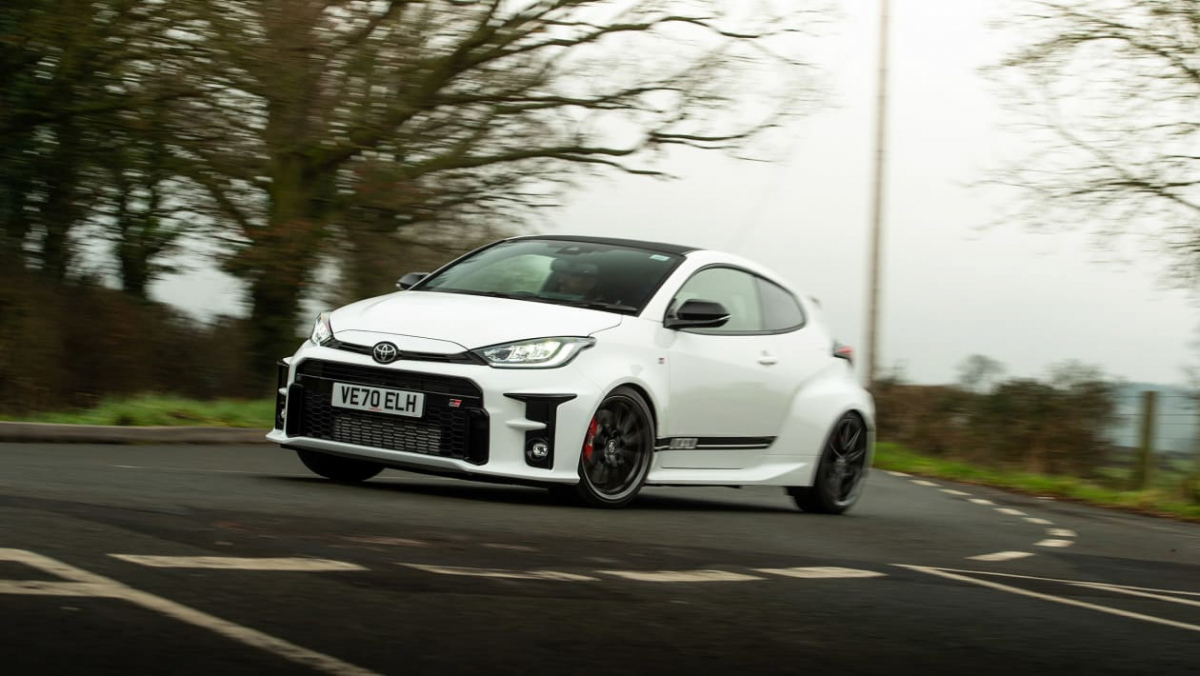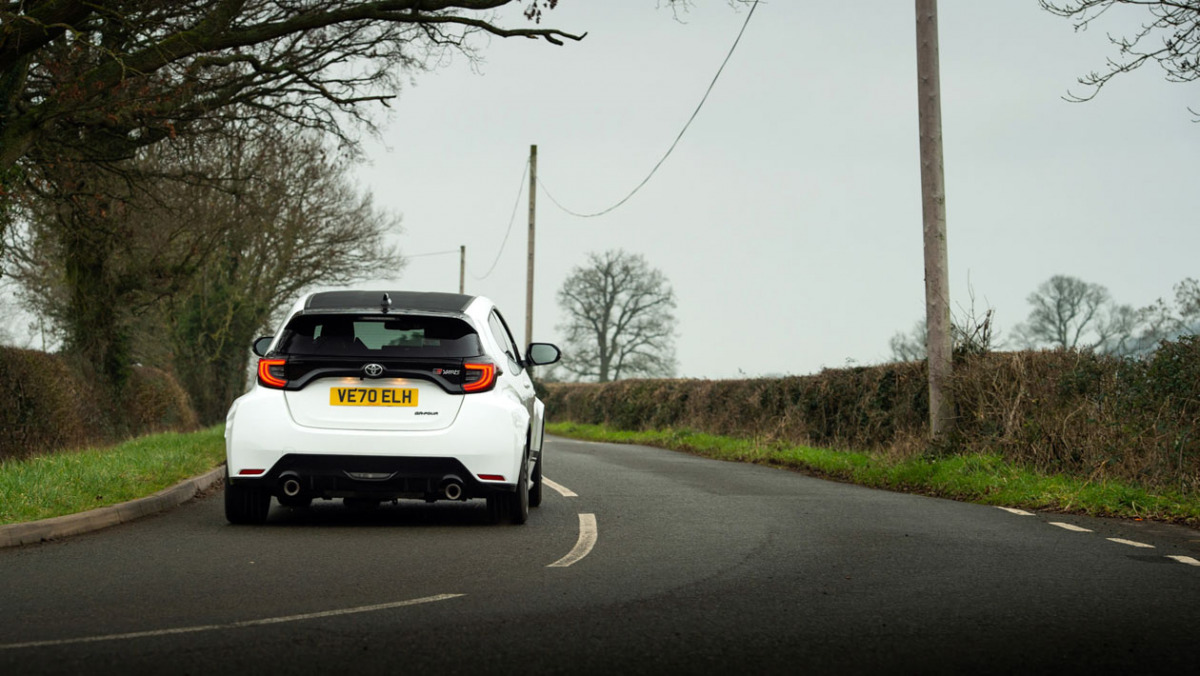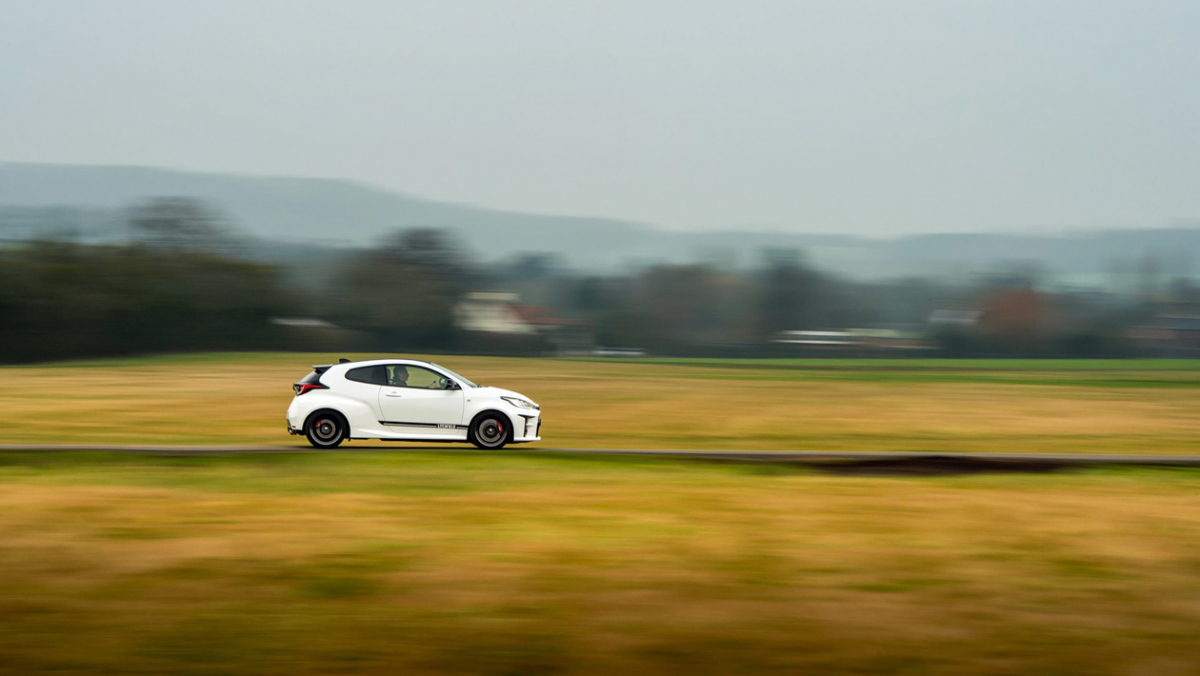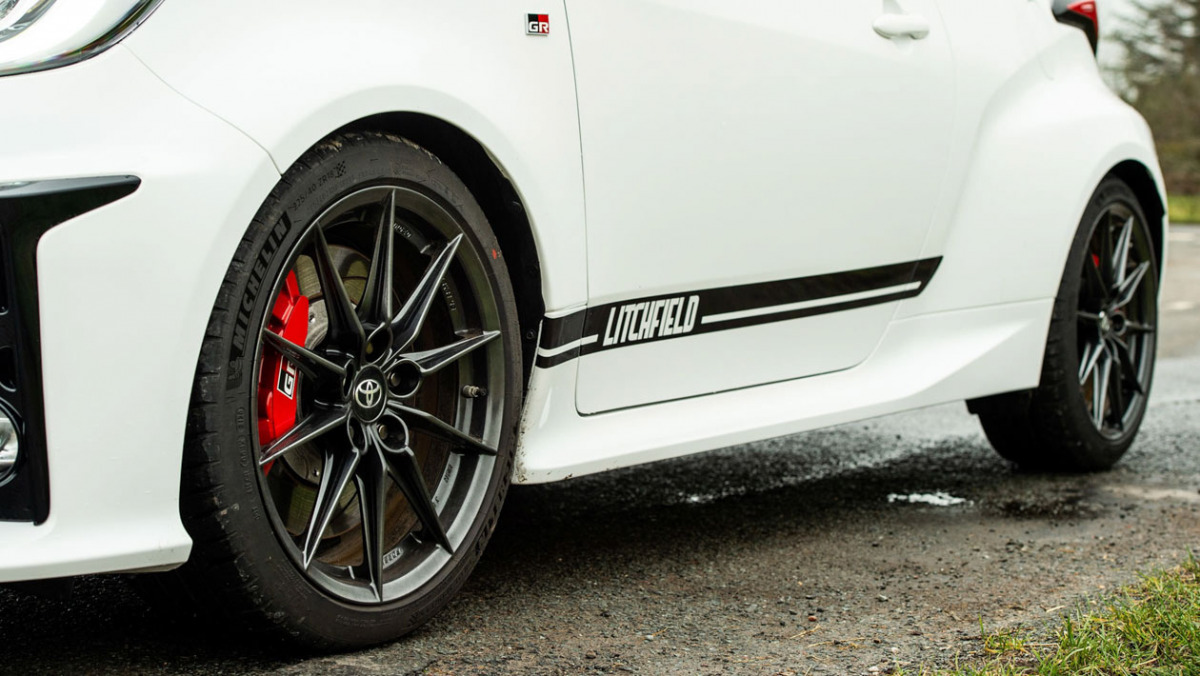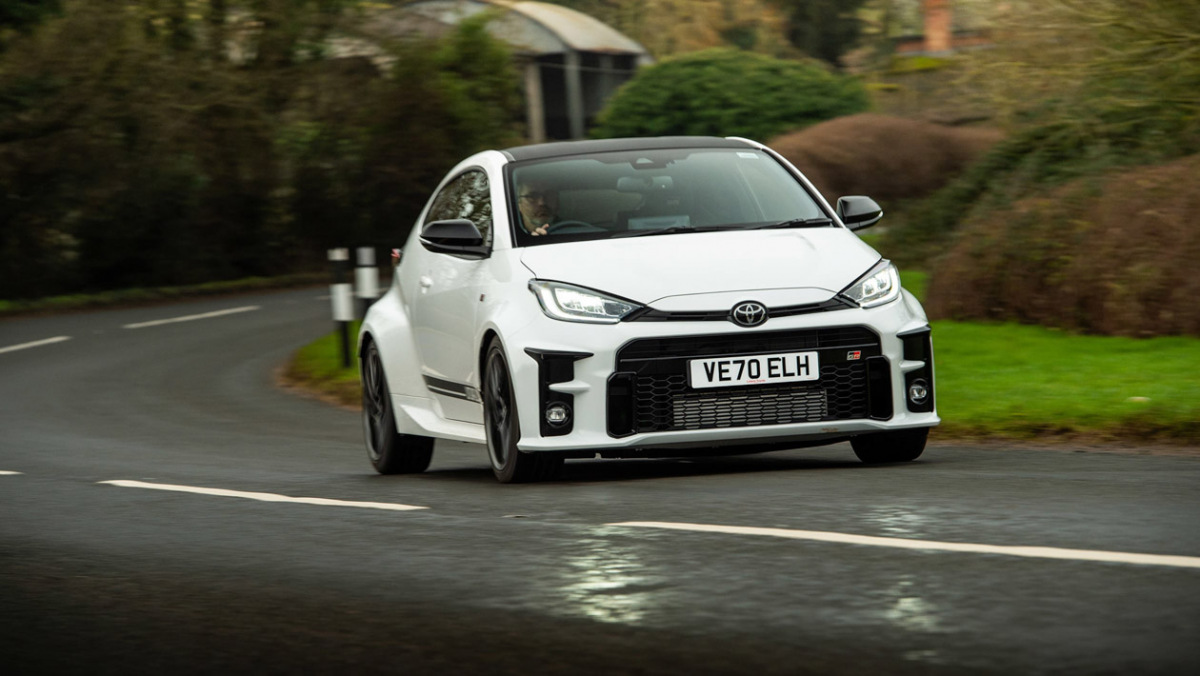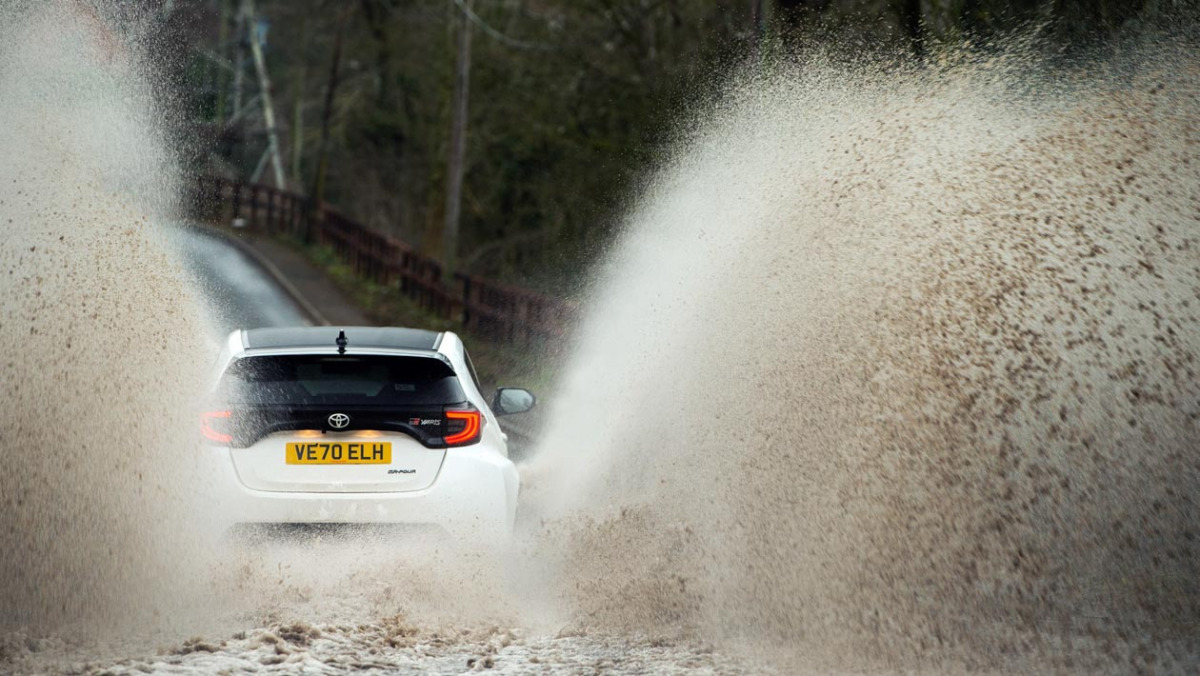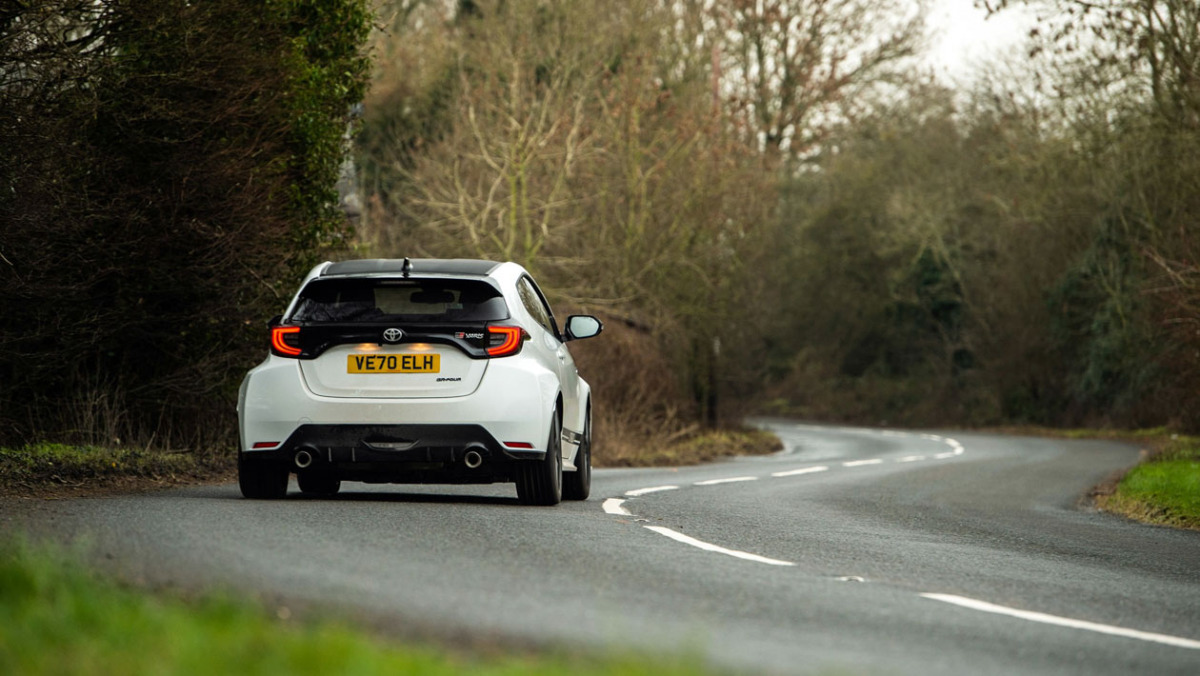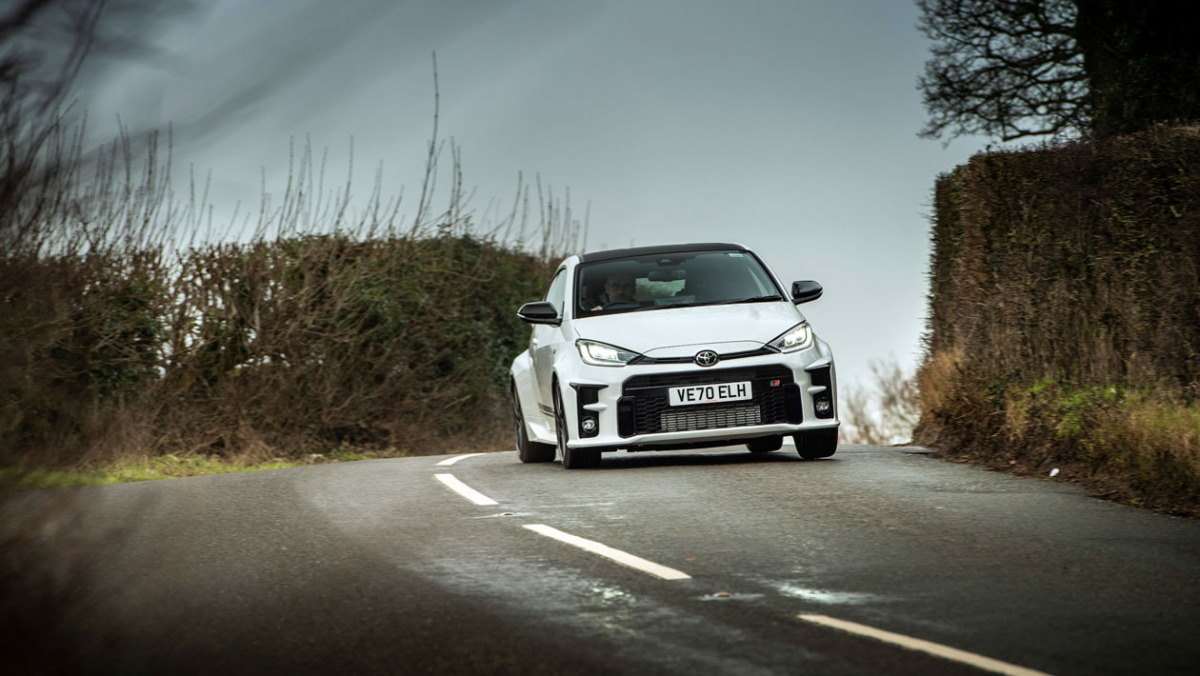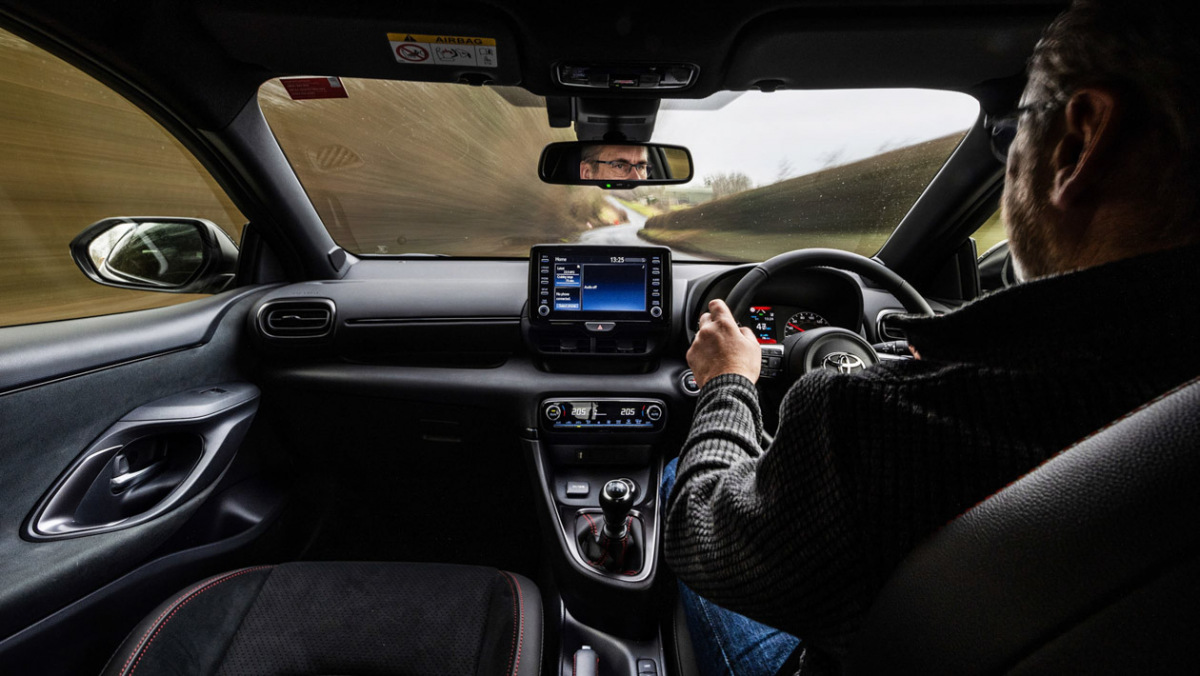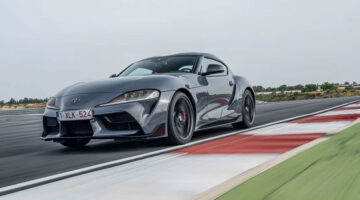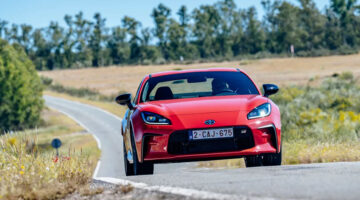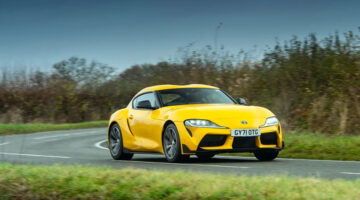Litchfield’s been fiddling with Toyota’s brilliant GR Yaris with predictably fantastic results
Litchfield has an eye for spotting cult cars and then working quickly to offer upgrades. It did it with the Alpine A110 and such is the firm’s reputation that owners were sending their brand new cars to its workshops to be upgraded before they’d even driven them. So it’s no surprise that the Toyota GR Yaris has attracted similar attention, Litchfield already offering a suspension upgrade as well as an engine uplift that takes the 1.6-litre triple to just over 300bhp.
Given the deluge of positive press the Yaris has had, you’d think it was beyond improvement, but a bit more power never does any harm, does it? I’m more interested in the suspension work, though, because I feel like I’m a rare dissenting voice on this aspect of the car.
I love the GR Yaris as a whole and had great drives in it on our Car of the Year test last year. No surprise, it loves ragged, dipping and diving roads, behaving exactly as you’d hope a small, short-wheelbase, four-wheel-drive rally car would. It’s a proper 3D experience, pitching and rolling as if moulding itself to the road, agile but secure, soaking up bumps and crests for maximum traction and drive. It feels like WRC cars look when they jump as they corner on gravel, landing on full throttle and hauling themselves off up the road without breaking stride.
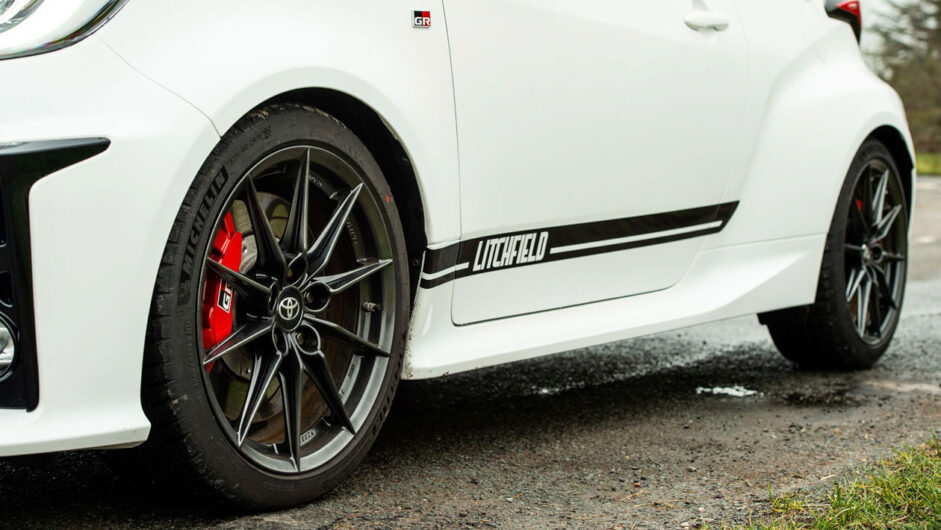
Maybe it’s a consequence of this malleable, loose-limbed set-up that the steering isn’t that sharp when you’re not on it, when you’re not getting the car moving to help with the turning. I was surprised to find that we had the sharper of the two GR Yaris specifications at eCoty, the ‘Circuit Pack’, with stiffer front springs and anti-roll bar and lighter alloys with Michelin Pilot Sport 4 S tyres, because, for me, its steering response was quite soft.
Litchfield acquired two Yarises, and while one was used to develop the engine upgrade, the other went to suspension specialist Nitron in Oxford to have its springs and dampers rated. On its return, Iain Litchfield drove the car to get a feel for its character and behaviour in various scenarios before instructing Nitron what he wanted in terms of bespoke components.
The new springs are a different design and not directly comparable with the OE items and the same goes for the dampers, which are changed from twin-tube to gas-filled monotube, with adjustable spring platforms so the ride height can be altered. The aim was for the suspension to be less jarring over random impacts and more consistent over sustained inputs, and for it to be set up with some rake – the nose a little lower – to respond more positively to steering inputs.
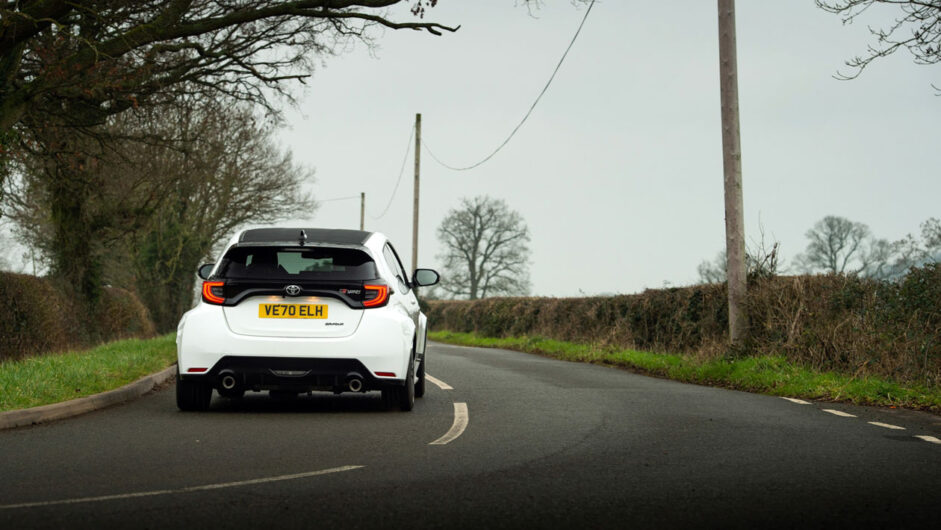
The dampers have 25 settings for bump and rebound, so you can tighten things up for trackdays or slacken them off for a bit more absorption, though Litchfield says the Nitron set‑up is still a little firmer than standard even with the dampers in their softest settings. We drove a car with them set to the mid-point.
The essential character of the GR Yaris is intact, just with a bit more firmness and polish. On your average bumpy A- or B-road there’s less bobble to the ride so the car feels more settled, and at speed there’s tighter control of wheel movement, so again the car feels like it’s smoothing out the road, staying better connected.
Our drive was in temperatures just above freezing on damp roads, so not a definitive test. Ride quality isn’t much affected by temperature but, obviously, the summer Michelins aren’t at their best and therefore neither is steering response. With the rake and more firmness in initial roll there’s a more positive, quicker turn-in but, personally, I’d like even more. The Yaris is short and agile but feels like it could take even sharper steering. Litchfield agrees and is currently developing a new suspension-arm bush that will increase caster. If that doesn’t deliver enough of a geometry change there are plans for adjustable strut tops. The Nitron springs and dampers are $4000 fitted, including alignment and corner weighting.
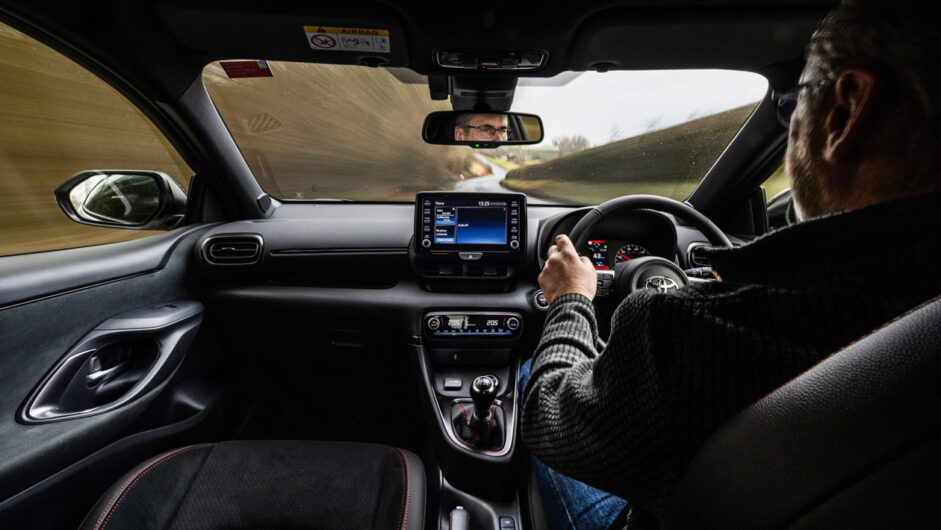
With a wheel removed to get a look at one of the new front struts, it’s striking how serious the standard brakes are. They’re indicative of the high level of build of the GR Yaris generally; it’s as seriously engineered as you’d expect of a car designed for the WRC, says Litchfield, including fully rose-jointed suspension and solidly mounted subframes (which is why there’s lots of road noise).
That’s not all. ‘One of our technicians is ex-Toyota and before he came to us he went on the course to learn about the engine,’ says Iain. ‘Not surprisingly, it’s a very strong unit…’ Litchfield hasn’t cracked the ECU yet, so the current upgrade is only scratching the surface. It’s just a simple ‘plug and play’ tuning box that connects via the OBD port and comes with a phone app that allows the user to switch between standard or tuned modes.
Power increases from 257bhp to just over 300bhp and torque from to 265 to 284lb ft. Add an ITG panel filter and you get a couple more bhp at the top end and a useful extra 10lb ft of torque low down because it helps the turbo spool up faster.
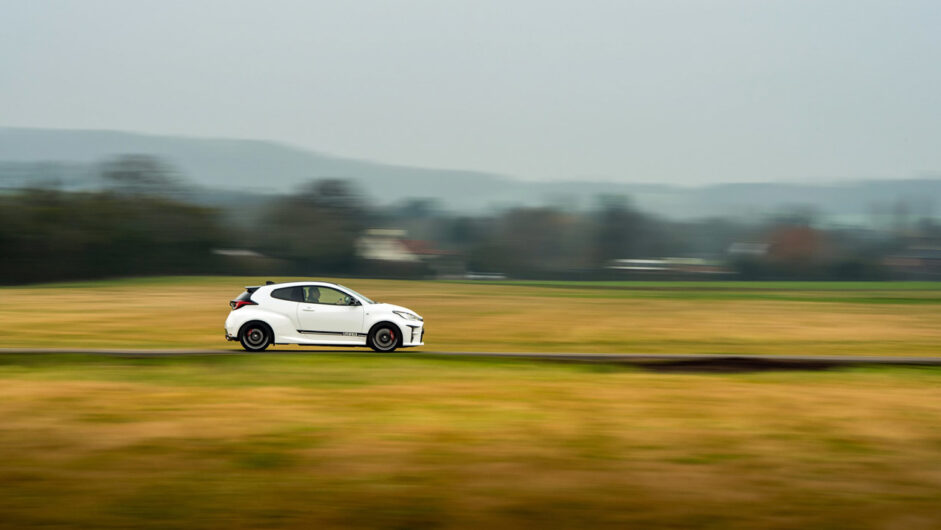
There’s no shortage of mid-range thump from the 1.6-litre triple in standard trim. Indeed, one of its most impressive attributes is how punchy the motor is for something so small, but this simple tune strengthens the delivery from the bottom to the top. The most obvious change in character is that the thrummy little engine now powers into the red with a relish that puts a big grin on your face. The ITG filter also brings an appealing extra dollop of three-cylinder gruffness.
We tried the engine tune in a Yaris with the standard chassis, and even on such a chilly, greasy day, with the drive set in its most rear-biased mode, the chassis and Michelins had no trouble containing and deploying everything the engine gives. I fully expect it would do the same with the Nitron set-up.
The engine tune costs $830 fitted, the filter another $60, which makes them almost irresistible. Add the suspension and you’ve got a Yaris that retains its inherent character but has more control and bite. What would the GR Yaris be like with 350 or 400bhp? I expect Litchfield will let us find out soon enough.
This article originally appeared at evo.co.uk
Copyright © evo UK, Autovia Publishing

